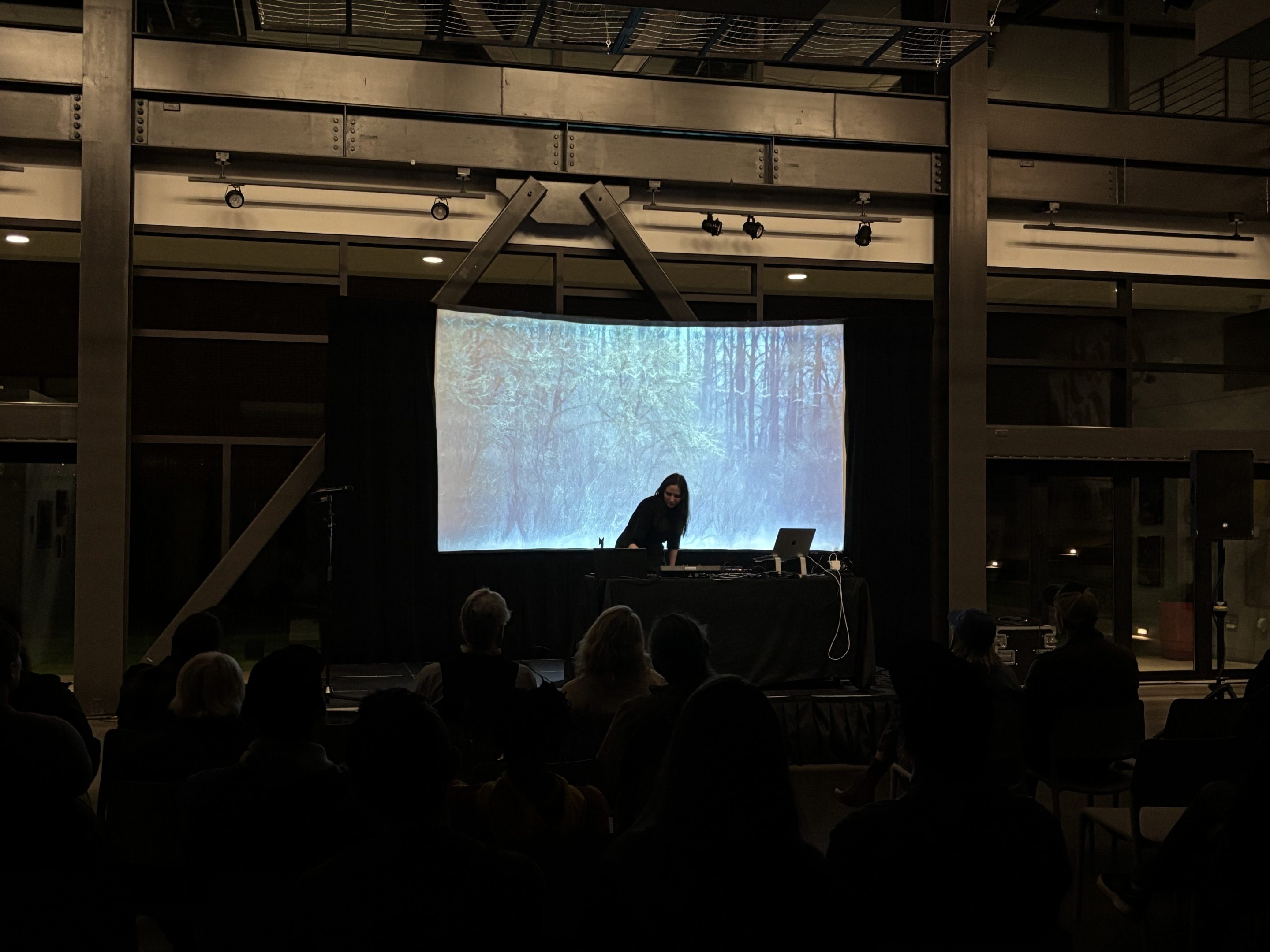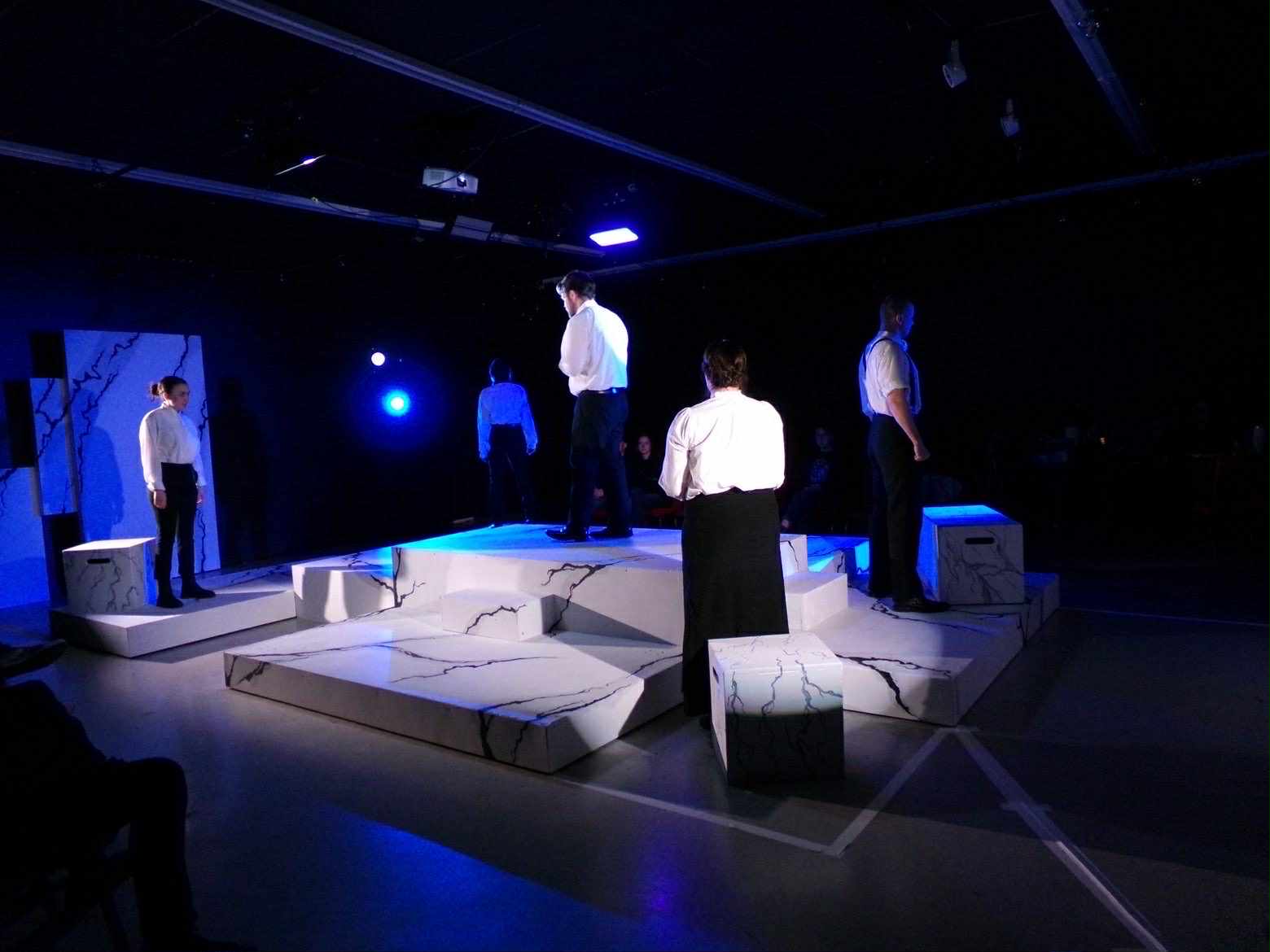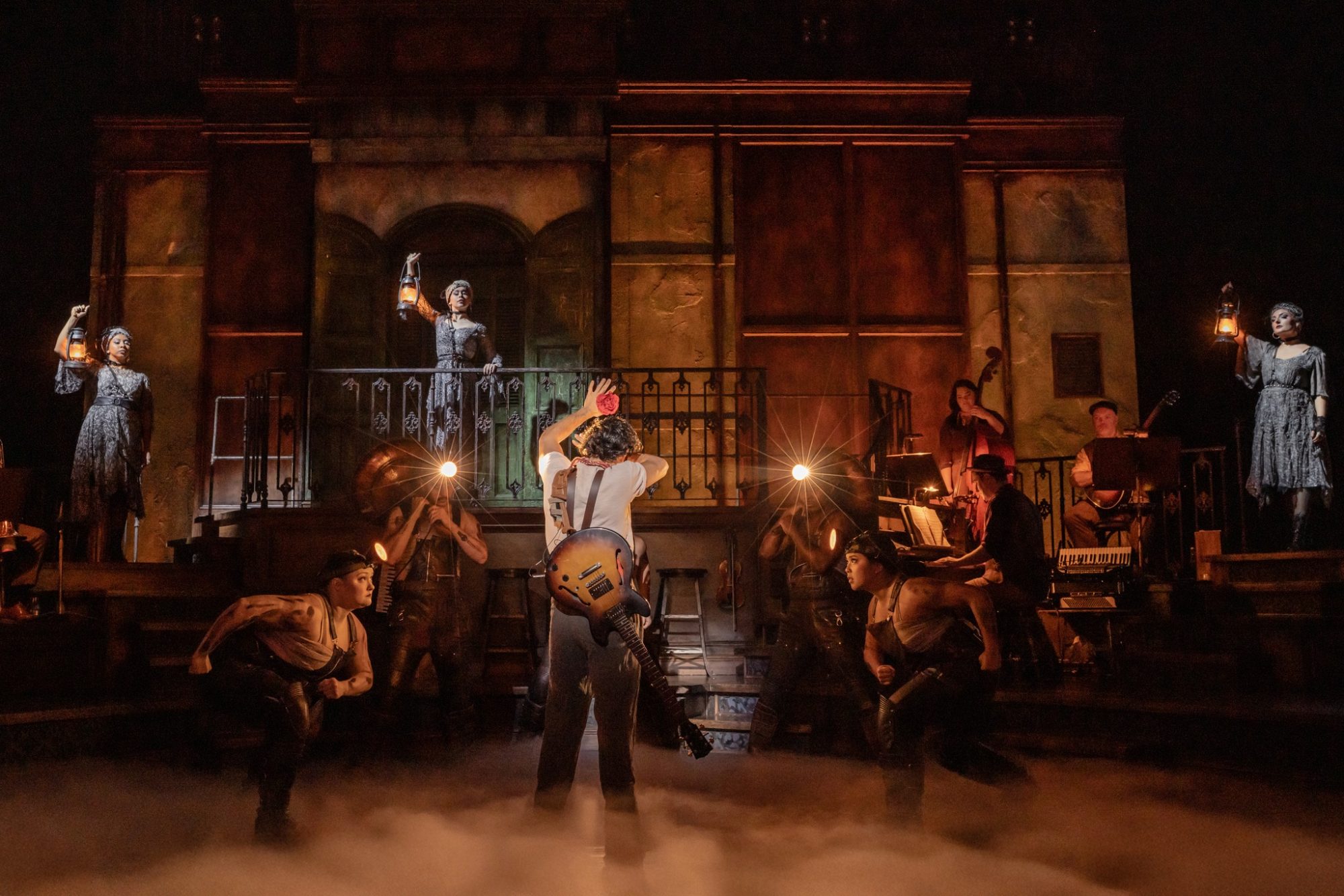Patricia Wolf: “Sounds of Hope”
101 Archer
March 6, 2025
Patricia Wolf’s performance at 101 Archer, presented by Oklahoma Center for the Humanities SPACE seminar fellow Brad Rose, created an apt soundtrack for this current moment in history. At a time defined by the noise of disastrous ecological events, chaotic political actions, a thinning boundary between artificial and human intelligence, and a widening class gap that has fueled a culture war, a call to create intentional, silent places can be a model for re-engaging with ourselves, our environment, and our community.
Based in Portland, Oregon, Wolf is a musician, sound designer, and DJ. She has released three electronic experimental musical albums alongside a number of EPs and long-form field recordings. Part musician and part performance artist, Wolf has toured internationally as well as received the Precipice Fund, a grant funded by the Andy Warhol Foundation for the Visual Arts. Many of her songs address our changing ecological landscape and the complexities of living in a contemporary society that is often at odds with nature.
Saying that Wolf’s work is “inspired” by nature, however, would sell it short. It listens to nature and presents it back to the audience in a way that asks listeners to come to their surrounding environment with open ears and eyes. The auditory component of the performance combined field recordings taken from the eight miles around her house in Portland, Oregon, with synthesized instruments playing chord swells and minimalist counterpoint melodies. A large-screen projection of the same areas where the field recordings were taken filled the space behind Wolf during her performance. The sounds were rooted in visuals of birds, trees, fields, bodies of water, and other natural scenes. Both the audio and video recording leaned on a meditative repetition of notes, nature scenes, and ecological sounds to draw in the listener and envelop them within the piece.
The natural sounds in Wolf’s soundscape created a document of a particular place in the Pacific Northwest, while the synthesized musical elements created an emotional guide for how to understand that place. The reprisal of the melodies' synthetic sounds created a soft contrast to the field recordings, bringing attention to the subtle variations and complexity of the sound in nature. Bird songs carried on a conversation with a sine wave and long pads from a synthesizer provided a backdrop to panning shots through forests and fog-covered mornings. Wolf built a musical commentary through manipulation of the sound’s timbre, amplitude, and texture. She guided the audience to follow this path, inviting us to communally experience the hope, magic, wonderment, and precarity of ecological places.
The performance was partially an archive of an environment in the Pacific Northwest, but equally a blueprint for how we can experience our own ecological surroundings in Tulsa, OK. During a Q&A session with Rose, Wolf observed that because of all of the surrounding noise, we have become largely desensitized to the world. Listening, for her, provides an opportunity to re-sensitize ourselves and, as a result, more effectively make change. Wolf referenced Hildegard Westerkamp, a pioneering sound artist who has also thought deeply about the link between listening and action:
“I wonder if our earth is burning, flooding, shaking so intensely in order to survive, in order to find a new natural balance,” Westerkamp said in a talk last year. “Listening deeply to all that may stabilize us in the midst of such chaos. It may keep us connected to each other and to the places we value. Most importantly it may give us real agency, focus and determination to make changes, and prevent further destruction.”
Our ability to intervene in the chaos of today’s world comes from listening to the balance that nature communicates to us, Westerkamp and Wolf suggest. Tapping into nature’s consistency and stability can ground us in a new world that is possible while encouraging us to create community and a shared sense of purpose.
In order to be better listeners to this message, however, we must figure out ways to create quiet, intentional spaces. Wolf’s performance may have happened on a specific date and at a specific location, but it was an experience that the audience could take with them and re-play in many different contexts to find their own quiet, intentional spaces that they could share with others. It encouraged everyone to hear a different version of their own environment and place, no matter where we are, and made a push to cut through the noise, become re-sensitized to the sounds around us, and see the present Tulsa as a shifting landscape of nature and development that can be the foundation for change.
The Pickup's reviews are published with support from The Online Journalism Project.







